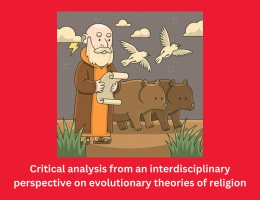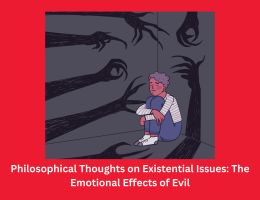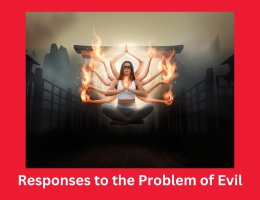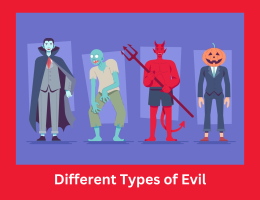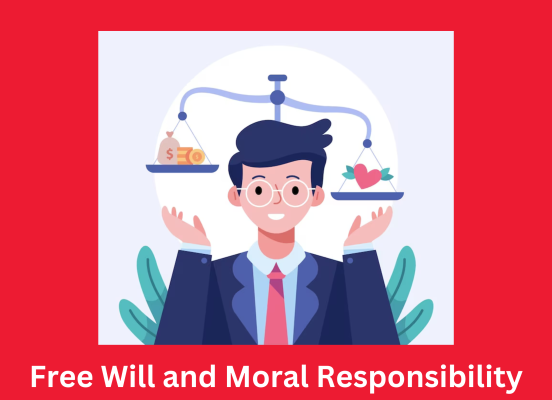
Free Will and Moral Responsibility
- By admin --
- Friday, 08 Mar, 2024
The concepts of unlimited will and moral responsibility are important in discussions of the illusory nature of evil in philosophy and in the supernatural This lecture explores the intimate connection between human order, morality process, and details the data and implications of what is really wrong. This take a look at's essential consciousness is at the fantastic implications this has for our facts of human freedom, moral obligation, and the query of evil: do surely ethical agencies want which will turn out to be privy to evil?
The problem revolves around the actor’s capability to pick out his moves with out the purpose of being silly, or the intervention of out of doors forces. Unlike regulations or having a set pace, the choice for relaxation and freedom to continuously deal with alternatives, values and thoughts appears to be a critical part of human nature, crucial for ethical selections, for the functionality to govern and depend upon ethical competencies.
Deep problems concerning the individual of evil and its relationship to human company are added up through the life of free will. If people are in truth free to pick, then they want to also have ethical responsibility for his or her choices, specifically those that cause injustice, misery, or damage to distinctive people. This indicates that once people pick to behave in approaches that cross towards moral requirements or injure every themselves and different people, evil can also additionally result from the misuse or abuse of human freedom.
The courting between loose will and evil, but, is nuanced and riddled with theological and philosophical problems. On the simplest hand, proper ethical organisation is frequently stated to require the existence of free will. People couldn't take duty for his or her actions or make morally massive decisions inside the event that they couldn't select among numerous publications of movement. From this perspective, the capacity to sin is the herbal component of human freedom and reflects the moral ambiguity that permeates human nature
But in a sinful life, serious issues arise about free will and the lifestyle of an omnipotent, loving God. If God is all-knowing and all-effective, then why does he permit human beings to abuse their freedom so as to perform cruel, unfair, and dangerous deeds? Why does not he step in to forestall evil from taking place or lessen its effect on human beings's lives? These queries name into question the consistency of a worldview that affirms the presence of both human freedom and divine kindness, challenging conventional spiritual causes of divine providence and the issue of evil.
Making a difference among moral and natural evil mainly can help us address this conundrum. Natural evil is distress and misfortune introduced on by using uncontrollable herbal processes, while moral evil results from the selections and deeds of people. In this perspective, ethical evil is a necessary byproduct of human freedom, due to the fact humans use their organization to make choices that have an effect on each other humans and themselves. On the opposite hand, instead of being the fabricated from human action, herbal evil is regularly understood as the final results of the created order's inherent flaws and obstacles.
Another manner to reply is to invoke the concept of soul-making, or theodicy, which holds that problem and misfortune have a better characteristic in the divine plan and resource in people's ethical and non secular development as well as the arena's redemption. This ideology believes that pain and evil are an integral part of being human and threatens to prevent people from growing in qualities such as empathy, compassion, patience etc. Despite the fact that struggle can painful and difficult, it ultimately advances divine economic means and makes it easier to see God's plan for mankind.
The concept of "epistemic humility," which recognizes the constraints of human comprehension in grasping the objectives and intentions of a divine being, has also been put out thru certain philosophers and theologians. This angle holds that tries to reconcile the existence of evil with the lifestyles of a kind deity might also in the long run fail and the life of evil may also stay a mystery beyond human clarification. Humans want to well known the inherent obstacles in their understanding and comprehension, at the same time as they may make an effort to apprehend the person of evil and the manner it relates to every unfastened desire and divine providence.
In summary, the analysis of moral responsibility and free will in consideration of the evil problem raises important questions about the person with human freedom, the truth of sin, the gender with a divine purpose Self-reflection requires humility, compassion, and openness to the challenges of each The Divine Windstorm and the Mystic Human 22 taking the position.

